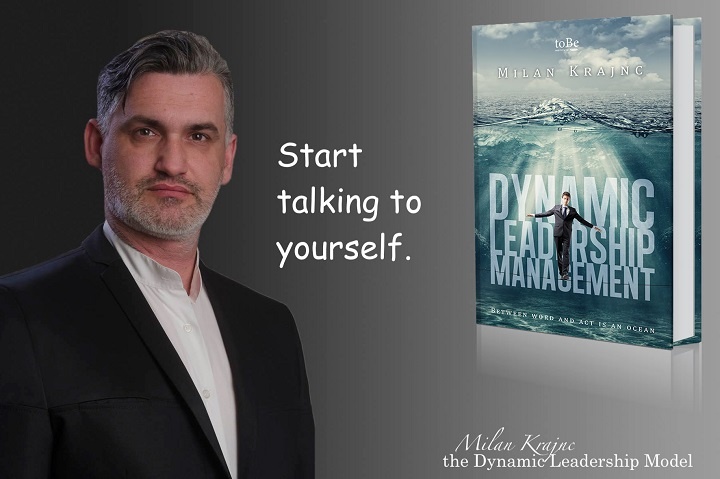WORDS: MILAN KRAJNC
COVER PHOTO: MIROSLAV PETROVIĆ
The success of projects depends on the project team. Therefore, it is necessary for the project manager to careful select his colleagues in a project. Each participant in a project has their own view on the project objectives and their participation in it. Participants tend to perceive a project from the point of view of their own needs. Consequently, the result may vary from the target set by the team manager.
On making up a project team, the project manager has to careful examine personal interests of each individual and their life goals, which are then compared with the project objectives. It is also vital to check the personal interests concerning the very project since it is possible that some individuals try to solve their personal traumas through the project. When taking on a project, one has to be emotional detached from it and complete unburdened. This can be achieved with the help of reality therapy. It is a means by which it is possible to teach the team members how to take on responsibility; it is possible to examine their personal interests and place ourselves – as team leaders – in a neutral position, from which we are able to view the entire project as a third person. This enables us to see all the mistakes and deviations that occur.
When carrying out a certain project one is often faced with a lack of responsibility, not only with project managers but also with those who carry out the project. However, the reason for such situation should not be searched for in people carrying out the project; it is necessary to move up the hierarchy of the project team, which eventual brings us to the project manager. Let us put ourselves in the project manager’s position. When one gets an idea, suggestion or order for a certain project, one has to ask oneself whether s/he is able to manage the project and act as a project manager. If the answer is affirmative, the reasons why one has decided to take on the project should be evaluated: does one wish to prove oneself, does one wish to earn more money, does one wish to solve one’s personal complexes, does the participation in a project contribute to one’s personal growth or merely represents a matter of adrenalin. The answer is of utmost importance since the final product, i.e. the project objective, depends on it. The project objective should be compared with our personal goals: the more similarities there are, the greater the possibility of becoming emotionally attached to it, of living 24 hours a day for it, of doing everything possible for the project to be carried out qualitatively and by the set deadline, regardless of all the “sacrifices”. Such a situation can prove excellent for the person placing an order but only if everything goes well. Otherwise, the entire project may turn out a complete disaster. A disaster means that there is only one person who knows what is happening with a project at a certain moment, and if something happens to that person (either physically or mentally), the project may be stopped or it may even fail.
 The first rule of the project management should be as follows – one should not get “emotionally” attached to the project, but should view the project from a distance, giving one the possibility to have control over things happening. We have to accept full responsibility for the project, i.e. we have to sign it with a name a and surname which we carry our entire lives. That means we cannot allow the project to finish different from what it was first planned. However, projects are not our means to erect monuments in our memory or to prove ourselves to “our fathers”. This happens when we get attached to the project – we start dealing with our own problems, we start solving our problems through the project instead of dealing with problems that should be solved by the project. In a certain project we have to concentrate exclusively on the project objectives and difficulties that might be solved through it.
The first rule of the project management should be as follows – one should not get “emotionally” attached to the project, but should view the project from a distance, giving one the possibility to have control over things happening. We have to accept full responsibility for the project, i.e. we have to sign it with a name a and surname which we carry our entire lives. That means we cannot allow the project to finish different from what it was first planned. However, projects are not our means to erect monuments in our memory or to prove ourselves to “our fathers”. This happens when we get attached to the project – we start dealing with our own problems, we start solving our problems through the project instead of dealing with problems that should be solved by the project. In a certain project we have to concentrate exclusively on the project objectives and difficulties that might be solved through it.
What happens if we are emotionally involved? We cannot trust anyone; we have to do everything by ourselves. We start accepting responsibility on other people ‘s behalf. And thus do their work. Suddenly we have no time for ourselves, for our families… We are getting more and more burdened and under stress. We even do not have time for communication. And because we do not communicate we do not forward Information and consequent, conflicts arise. Suddenly no one feels well, the entire project depends on one person only, the quality of the project decreases, and deadlines are not met. The project becomes more and more expensive and in the end, the work is being done just to be finished. And then you say to yourselves: “Next time it will be completely different!” And such is the situation with every project.
What should be done in order to avoid something like that happening from one project to another? First, we have to start viewing ourselves as a project. Thus we will be able to look at ourselves as if we were someone else; we will be able to get detached from ourselves. We will see all the mistakes that we make, which will enable us to approach the difficulties that we have encountered. We have to set an objective in our life – what kind of person we want to become and what we want to achieve in our lives. When the objective is set, we plan some steps, i.e. short -term objectives, enabling us to achieve our main objective. When writing about objectives, it is not only the material ones that we long for (a house, a car, etc), but also a marriage, children, position in the society, our mental state.
When we set our objective, it is easier for us to know what kind of projects we will choose and what will be the objectives we will try to achieve by taking them on. We must carry as little information as possible about the project. Ali the information must be written down and mutual connected. The information system enables us t o have all the information in one place. Thus we put the project on a piece of paper or a computer and do not carry it within ourselves. By placing the project outside ourselves we are able to view it from a distance. We will do the same with colleagues that are selected for the project.
Generally, there are two possible approaches. If we do not want them to get emotionally attached, we act as an authoritarian manager – we allocate the work and control its execution without giving the participants opportunity to add their own suggestions and improvements. In this case, the colleagues are merely some people who carry out the project. Consequently, the entire organization and creativeness depends on us. Therefore, it is better not to choose such an approach, and act in such a way only when the circumstances require so. Namely, a project team should represent the spirit of a true team work. Making up a project team The first thing to be careful about is the selection of our colleagues. We should not only pa y attention to their expertise but also to their personality, communication and the understanding of objectives. The first meeting is extremely important and should be planned as follows – we explain the project’s vision and objectives while a potential colleague writes minutes and forms his/her own strategy of how to achieve those objectives. Thus we are able to see how the person understood us. The closer the person to our conception, the fewer conflicts there are. The flow of information will be faster. We have to be careful about a person’ personal objectives and the role s/he wants to play in a team. It means that the project manager has to have extensive knowledge of psychology and people’s characters. At the first project meeting, the entire team is shown a plan, composed of individual strategies, although we already have the whole plan designed.
However, we cannot benefit from our plan if the abilities of our team members differ from our personal predictions. It is , of course, necessary to consider all the corrections regarding the project objective and by doing so we come to the most optimal project plan, especially as regards its realization. The meeting is intended for people to get the complete picture – we make comments and outline a complete strategy. With such a review, where we consider individual’s suggestions, the team members gain trust and their motivation is increased due to the fact that someone took into consideration their own opinion when they least expected it. It is fundamentally in our nature to be considered by others. However, we should play it straight throughout the project – the work of the entire project team should be free of manipulation and very honest.
By being given an opportunity to make their own suggestions and propose final solutions for the realization of their work, each team member publicly accepts responsibility since they had to present their suggestions in front of other team members and enumerate all the critical ways and solutions. At the conversation, we have to be honest and should not hide anything. If we try to manipulate people and cover up certain facts, everything “accumulates” in our subconscious. Since we will not do such a thing only once, the “heap” will only get bigger. Such a heap of “lies” is called psychological waste. Since the space in our subconscious is limited, the “waste” will hinder it. Thus our ability to think logically and soberly is lowered and consequently we become more irritable, under more stress – inadvertent we become emotionally attached to the projects problem`s.
The role of the project manager
We keep our distance from a project in various ways. All the data are forwarded to an information system, which enables good planning and a constant comparison with the realization. This means that whenever we acquire a new piece of information, we write it down into a notebook, telephone, palm PC, computer, etc. We have to make sure that the information reached the right person, who has to confirm that s/he did receive it. It is in this way that we place our “worry” outside ourselves. All the information, its flow and objectives need to be examined on a daily/ weekly basis, depending on the deadline and the difficulty of a project. A project manager should not place himself/herself into an operative role.
The role of a project manager should be organization, coordination, translation, encouragement -motivation, i.e. a project manager should distance himself/herself from the project and provide help to people carrying out the project if they get lost throughout the process of searching for information. When a project manager sees that a certain team member is completely “buried” under a problem and cannot find a solution, s/he has to have a conversation with that person by means of which the person is somehow freed from it and is able to talk about it as if it happened to a third person.
When a team members encounter a problem, it is not a project manager’s responsibility to take on the operative tasks. Honesty and respect are one of most importance. They concern the basic project culture, which represents the foundations of the entire flow of information. If they are not present, it is possible to talk about manipulation and thus lack of project management. If we say that all the information has to be in one place that means that it is available for everyone to see it. Manipulation results in duplication of information, double work and playing different roles. Eventually this causes us to get lost. If we become emotionally attached to the projects problem, we start solving our personal problems. Since we are not almighty and able to get rid of all our troubles or complexes (this is a long-term process), we must not get emotionally involved into a project, but merely look at it from a distance and aspire to reach the project objective. However, if such a thing does happen to us, we have to have control over ourselves as well as over the project.
Self-control
We can help ourselves by means of control therapy, which is a part of reality therapy. First we have to see how we feel, then we have to see ourselves as if we were a third person, i.e. everything that happens to us, actually happens to someone else. Therefore, we describe that person by using a third person plural form. Thus we inadvertently step outside ourselves and our problems. This enables us to see our problems and their solutions; if we do not see the solutions, we look for them. It is in this very way that we have to view a project, with a supposition that we take full responsibility for it. All projects and problems are born inside our heads and if we ourselves are the cause, then we can also find solutions. There is a proverb in practice which says that we are always “clever” when dealing with other people’s problems. We can help others by offering solutions, however, we cannot help ourselves. Why this is so? Because we are not a part of their problem and can view it from a distance, i.e. we are an outside observer. We simply have to write down our problems as if they were someone else’s. The text on a paper is a third person to Insight we are going to give advice on how to solve their problems.
Milan Krajnc is an expert in solving the challenges that arise from the interaction of different personality types within a company or organisation of any size and scope, from local to national levels. He is able to complete projects that are already being undertaken as well as initiate transformation from the very beginning. He seeks out the root of a problem and eliminates it. He is the creator of the Dynamic Leadership Model.



